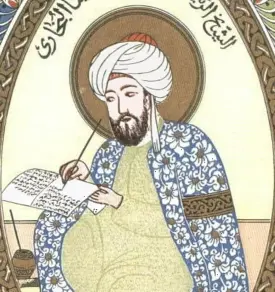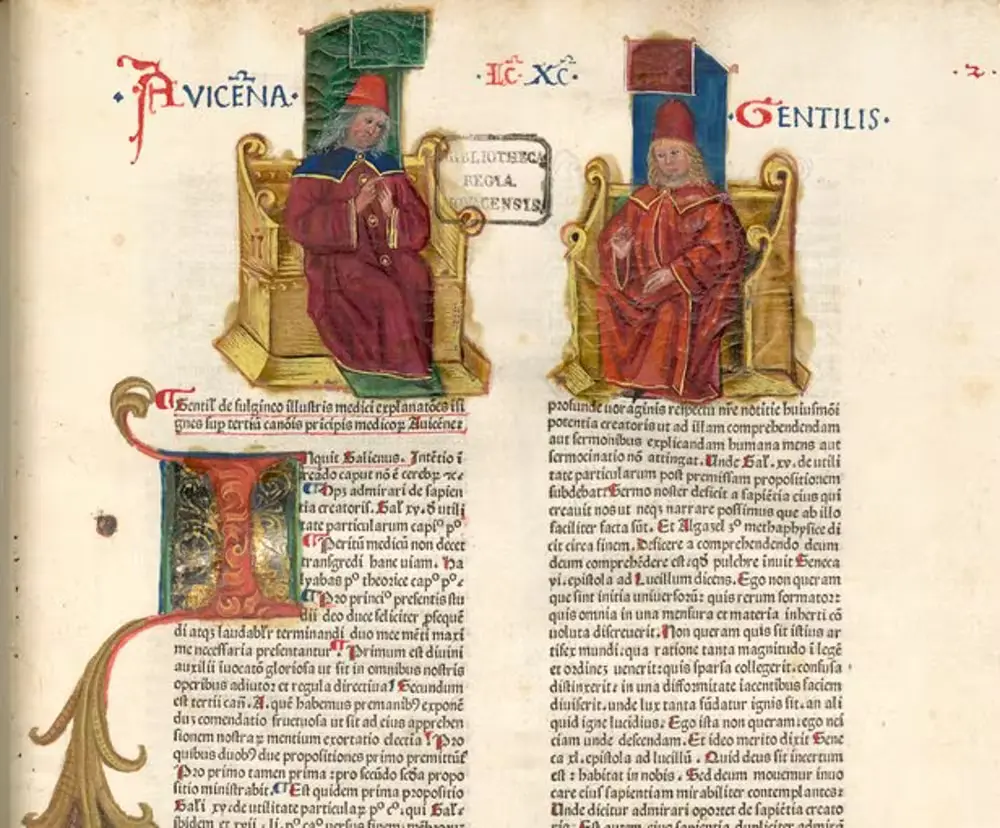 Ibn Sina, commonly known in the West as Avicenna, was a Persian polymath who is regarded as one of the most significant physicians, astronomers, philosophers, and writers of the Islamic Golden Age, and the father of early modern medicine. Although Avicenna exericised considerable influence over medieval European thought, in Muslim circles he is considered above all to be a great spiritual leader.
Ibn Sina, commonly known in the West as Avicenna, was a Persian polymath who is regarded as one of the most significant physicians, astronomers, philosophers, and writers of the Islamic Golden Age, and the father of early modern medicine. Although Avicenna exericised considerable influence over medieval European thought, in Muslim circles he is considered above all to be a great spiritual leader.
Avicenna is the transcription of Ibn Sina.
Abu’Ali al—Hosayn Ibn Sina was born near the extreme eastern frontier of Persia and spent his whole life there. He was most likely Shi’ite and close to the Ishmaelis. As a precocious child, he was much admired for the extent of his knowledge. For a time he practised medicine and compiled a Canon of Medicine, which became the guide to medicinal study in Europe for centuries after.
Avicenna’s Canon of medicine, first translated from Arabic into Latin during the 12th century, was the most important medical reference book in the West until the 17th century, introducing technical medical terminology used for centuries afterwards.
Ibn Sina was much sought after by Princes, and held the position of Vizir on numerous occasions at Hamadan, then Isphahan. He may have spent his days in business, but his nights were dedicated to study and teaching. He died a true Believer.

His Works
His works consist of more than 200 titles, of which, apart from his Canon of Medicine, the most Famous are: Kitab Ash Shifa, (The Cure of the Error), an encyclopaedia of philosophical sciences in 18 volumes; and Almahad (The Return), which describes how, after its separation from the body, the soul returns to its simple pre-incarnatory state. Ibn Sina worked at length on an Oriental Philosophy which he considered his major work. We only know of fragments, in particular the three mystic Narratives, in which he partially unveils the secret of his own personal experience, in the guise of an initiatory voyage towards the mystic East, in the company of the guiding Angel.
From the 12th century on, Avicenna shaped the thought of major European medieval thinkers. Thomas Aquinas’s writings feature hundreds of quotations from Avicenna regarding issues such as God’s providence. Aquinas also sought to refute some of Avicenna’s positions such as that which argued the world was eternal.
His other major work was “The Book of Healing”, a scientific and philosophical encyclopedia. This book was intended to ‘heal’ the soul. It was split into four parts: logic, natural sciences, mathematics and metaphysics. In his book, he developed his own system of logic, Avicennian logic. In astronomy, he proposed that Venus was closer to the Sun than the Earth. He invented an instrument for observing the coordinates of a star. He made several astronomical observations and stated that the stars were self-luminous. In mathematics, Avicenna explained the arithmetical concept and application of the “casting out of nines”. Ibn Sina also contributed to poetry, religion and music.
Role in Islamic spirituality
Avicenna’s major achievement was to propound a philosophically defensive system rooted in the theological fact of Islam, and its success can be gauged by the recourse to Avicennan ideas found in the subsequent history of philosophical theology in Islam. In the Latin West, his metaphysics and theory of the soul had a profound influence on scholastic arguments, and as in the Islamic East, was the basis for considerable debate and argument. Just two generations after him, al-Ghazali (d. 1111) and al-Shahrastani (d. 1153) in their attacks testify to the fact that no serious Muslim thinker could ignore him. They regarded Avicenna as the principal representative of philosophy in Islam.

Image Credit: Wikimedia Commons/ Creative Commons CC0 1.0 Universal Public Domain Dedication, Welcome Library/Gentilis de Fulgineo, 1477. , Wikimedia Commons/Fars Media Corporation
![]()

